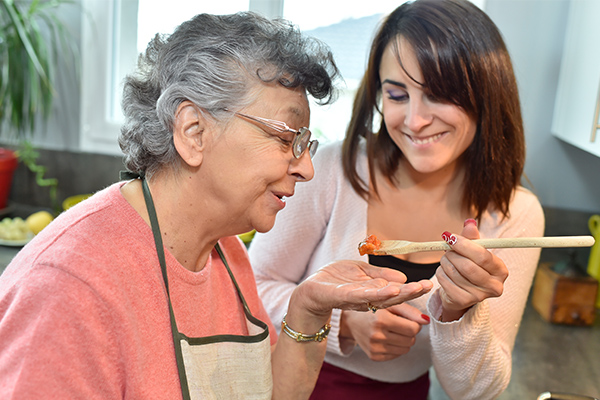In this article:
I had an illustrious sales and marketing career that spanned more than a decade, but everything changed when I was diagnosed with a brain tumor in 2015.

This crippling illness reduced my IQ and cognitive function to that of a baby, but here I am some years later, writing about it. I lived to tell my story, and I want the same for others who are going through the same ordeal as I did.
From being a team leader working in the intensely competitive consumer packaged goods (CPG) industry to losing the ability to read, write, or do basic math and then relearning all these skills to become functional again, it has been quite a journey.
My tryst with brain tumor has instilled in me a passion for life and helping others, but instead of preaching about resilience, positivity, and motivational strength, I believe in leading by example.
Here’s my story, and I hope it gives you hope and courage to survive your own struggle.
Getting Diagnosed With a Brain Tumor
I went on a ski trip with some work colleagues in 2015. On the first day skiing, I fell quite hard on the icy slope. I even broke my ski goggles!
In pain and with a self-taped, bruised finger, I decided not to ruin my vacation and continue skiing. Once I was back home, I went to the emergency care center and told them what happened. I didn’t lose consciousness, so they didn’t take an MRI and told me there was probably nothing to worry about.
The following week, I caught the flu. But after I recovered, I was left with a terrible headache. I started to get concerned that maybe we missed something from the fall after all, so I went back to the emergency care center.
This time, they took a CT scan. The doctor reviewed the results. He told me that there was no injury from the fall, “but you do have something there.” He told me to make an appointment with a neurosurgeon.
Still, I wasn’t worried at all. I had been healthy all my life and had no neurological issues aside from the headache. What could possibly be wrong with me if I felt in perfect health? So I was shocked when the doctor told me otherwise.
“Nathalie, you have an intraventricular meningioma,” he said. “A brain tumor the size of a golf ball. You need to have surgery ASAP.”
My Reaction to the Tumor Diagnosis
I was not too worried about my diagnosis. I was told that the surgery would take as little as two hours and the only possible side effect was a 2% chance of losing my peripheral eyesight. (1)
The estimated recovery was only 3 weeks. (2) After working for so many years nonstop, having a bit of time off did not sound like a bad idea! I’d catch up on all the series I hadn’t watched!
Earliest Symptoms of the Brain Tumor That I Missed
I did not realize that I did have symptoms before the surgery. I realized that I had headaches every day, and I would never leave my house without a little jar of Advil that I would take if I had a headache.
I always thought headaches were normal due to a lot of computer screen time, work, and stress. Only then did I realize that that number of headaches were a symptom of the brain tumor and not the stress.
Probable Cause and Associated Health Risks
There are no known causes or reasons for brain tumors discovered yet by the medical field. There is a connection with hormones, but nothing is proven yet. Women have a higher probability than men to have brain tumors. (3)
The risks if you have a brain tumor are plenty. The risks really depend on the size and location of the brain tumor. There are benign and malign brain tumors, but they all can have strong life-altering side effects for patients.
In my case, my brain tumor was located on the left side of the brain, in the area of the brain that manages cognitive thinking and eyesight. (4)
The Treatment Plan

The appointment I had with the neurosurgeon when he told me I had a brain tumor was my first and last appointment with my neurosurgeon. Two weeks later, I had brain surgery.
When I woke up in the hospital, I was partially blind. I could not read or write in any of the three languages I speak. The only number I recognized was eight. Everything was an “8.”
They asked me to write my name, and I drew a circle. My husband and family were shocked. I, on the other hand, was having a blast! I couldn’t stop laughing.
I found my condition hilarious, as I thought it was only temporary. I enjoyed every moment. I was too dumb to realize the gravity of the situation. It took years of speech and cognitive therapy to learn how to read, write, and add again. (5) My 34-year-old brain became so simple – I was like a toddler.
People would visit me, and I would be coloring for hours. That was the only thing I could do and enjoy. I could not even watch TV, as the stories were too advanced for my brain to understand (so much for catching up on those series!). I could not do any of the simple tasks I took for granted before the surgery.
My friends would text me and I could not read the messages. I couldn’t read medication instructions, so I couldn’t be responsible for taking my own pills. I had to be taken care of 24/7 for months.
My Family, My Support
The first months were incredibly special. I had amazing support from my friends and family that helped me through the first several months of recovery.
I was not even able to be left alone in the house for the first 2 months, so their support was key and necessary. Receiving so much love and support filled my life with joy, even in these troubling times.
Challenges During Treatment
Four months after the surgery, I lost my job, as I was clearly not regaining my former IQ. My eyesight wasn’t coming back either. But I never stopped being resilient and thinking positive.
Being strong and relentless was the only way I was going to get better. I had hours of therapy at my house and at the hospital.
Hours became months, and months became years before I learned how to read, write, and add again. My husband’s job relocated us to Connecticut, where I took more IQ tests.
My IQ, which before the surgery was above average, consistently tested below average for 6 months, then 1 year, and finally 2 years after the surgery. I realized that my career was over.
Health insurance would only cover one session of speech therapy. Having therapy was key to my recovery. The fact that they would only cover one session per week was far from what I needed to truly recover.
So, I took this into my hands and did therapy by myself for hours daily trying to recover my brain functioning capacity to return to work.
Road to Recovery

The journey to recovery was long, longer than I possibly could imagine. I am now 5 years post-surgery, and I’m still on the journey to finding a new normal.
I have been disabled and partially blind ever since the surgery. Losing my job and the ability to be independent was difficult for me and my family.
Finding a new normal, a new life, and new passions was not easy, but by trying new things, I discovered a new passion and happiness, which is helping others. That is my new goal in life.
Part of my cognitive therapy was to learn how to read and write again. I started writing about what I was going through as I thought that would oblige me to write, and by writing, I was obliged to read and remember what I was writing.
When I found out I was pregnant, I decided to convert the written pages into a book for my daughter, so she could learn a little about who “mommy” was before her surgery.
This is the reason I self-published a book titled 8: Rediscovering Life After a Brain Tumor, which many fellow survivors and family members have told me has helped them in their journey. This has made me very happy, that though this I have been able to touch other people’s lives.
My Advice to Other Patients With a Brain Tumor
First of all, always get two medical opinions. It’s important to be well informed about your diagnosis.
Life will change for you, but you will find a new normal and a new happiness. It might not feel like this every day, but if you walk your path with a smile and positivity, you will find a way to recovery and peace.
There are many online support groups of patients and family members of patients that helped me a lot after my surgery. (6) These resources are great to not feel alone and to feel understood by others who are going through the same journey as you are right now.
I would also recommend you explain to your family members and friends your potential side effects. Remember you are the one who understands your diagnosis the most, and your friends and family might or might not research what you have.
That is why it is important to share with them the side effects you might have to help them at least prepare for them and to help you navigate them.
For example, I suffer from extreme brain fatigue (or brain fog as others call it). It is difficult to see and explain, so I have had to explain to them over and over how this side effect affects my day to day life.
Many of the brain tumor side effects and disabling characteristics are not obvious to someone’s eye, as they are internal. This is why explaining and being open and sharing all the information with your loved ones is important so they can share the journey with you.
My Appeal to Those Who Take Their Health for Granted
We are all healthy, until one day, we are not. We all take health for granted, but sooner or later, it won’t be there anymore.
Take this into account, and if you can, obtain a good health insurance, life insurance, and disability insurance. Prepare for the worst, and expect the best.
I was lucky that we had savings that we could use during this difficult period. I did not have life insurance, and now no one will give me one. If only I planned for it before.
My Life After Treatment

I still miss work. I miss the old me sometimes, but being a mom has completely changed my goals in life. My new dream is to help others. I began by focusing on moms, creating a community intended to build great friendships and support networks.
I started a community group in my town called “Westport Stay-at-Home Moms,” where moms can get together for playdates and moms’ nights out and find other opportunities to support each other.
I also created a group to support brain tumor survivors and another to help women in town advertise their businesses. But above all, I know I need to prioritize my little one.
As an aftereffect of the tumor, I suffer brain fatigue and low energy, and so I’m limited in my activity and have to rest frequently in order to be able to function and be there for my little Nicole. I have no doubt that being a brain tumor survivor has made me a better person.
Life is full of surprises. We all have the power to take these surprises and convert them into experiences that bring us new happiness and different horizons that we may have never dreamed of for ourselves.
For me, that meant becoming an author. My unexpected journey inspired me to write my book, 8: Rediscovering Life After a Brain Tumor.
We all must reinvent ourselves at different moments in our lives. Whether it’s facing down something tragic and unexpected, such as the brain tumor, or simply experiencing a major life change, such as becoming a mother, learning from the challenges life throws at us and standing back up as a better, more mature, and considerate person are vital.
Being disabled and a brain tumor survivor has given me the gift of being a stay-at-home mom to my little Nicole. Being a mom has brought me the purest friendships, the purest love, and the deepest and most genuine happiness ever. It’s been the greatest most unexpected gift I could have ever imagined.
- Was this article helpful?
- YES, THANKS!NOT REALLY


